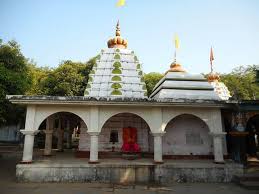
Jogisarada
Balangir, India
- Enjoy the peaceful surroundings
- Explore the rock edicts
- Learn about Mauryan history
- Photography of the ancient site
- Visit nearby temples
Known for:
Description:
Jogisarada is a historically significant site located near Balangir, Odisha, India. It's primarily known for its ancient rock edicts, believed to be inscriptions from the Mauryan period, offering valuable insights into the region's early history and the spread of Buddhism. The site is a serene and relatively untouched area, providing a glimpse into the past. While not a bustling tourist destination, it appeals to history enthusiasts, archaeology buffs, and those seeking a peaceful and reflective experience. The surrounding landscape adds to the charm, making it a worthwhile detour for travelers exploring the Balangir district. The site is maintained by the state archeological department.
History:
The historical significance of Jogisarada lies in the presence of rock edicts, which are believed to date back to the Mauryan era, particularly during the reign of Emperor Ashoka. These inscriptions, etched onto the rock face, are thought to be related to Ashoka's conversion to Buddhism and his efforts to propagate the Dharma (righteous conduct). The edicts likely contain moral teachings and administrative instructions intended for the local population. Over time, the site was somewhat forgotten, only to be rediscovered and recognized for its archaeological importance. Today, Jogisarada stands as a testament to the region's ancient past and its connection to the broader Mauryan empire.